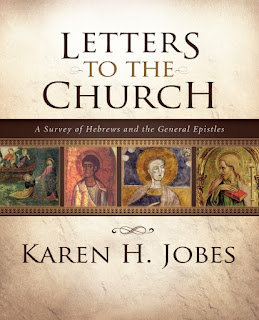Four years ago, President Donald Trump took the oath of office and all over America hundreds of thousands of people took to the streets in protest, some of them violent, all of them deeply concerned. Christians from Catholic, mainline, Black, and Brown churches expressed shock and concern over the appointment of a man who seemed to delight in exploiting women and to cozy up to dictators while snubbing America's allies. They feared that the most vulnerable members of our cities, especially immigrants and people of color, would be further marginalized by an administration aimed at the angst of blue-collar workers in rural America who were watching their way of life disappear. Meanwhile, many Evangelicals celebrated the possibility of greater religious freedom, conservative appointments to the judiciary, and legislation that upheld traditional family values and protected the unborn. Charismatic prophets heralded President Trump as God's man for the job.
Today, President Joe Biden will take the oath of office. Those troubled by the outgoing administration are breathing a sigh of relief, hoping for four years of police and prison reform, support for schools, greater equality women and minorities, and better cooperation in international concerns such as immigration and climate change. It remains to be seen how President Trump's supporters will respond, but the breach of the US Capitol building two weeks ago is still a vivid memory. Evangelicals who celebrated a Trump presidency are nervous about losing their freedom -- some desperate enough to break past police barriers to make their voices heard. The Coronavirus pandemic has already curtailed religious gatherings. Evangelicals fear that a Biden presidency will mean more pandemic-related restrictions that will cripple businesses and prevent the church from being the church. They fear a legislative agenda that will make it more difficult for faith-based organizations to live by their values.
Our nation is deeply divided. Many families are split right down the middle over politics.
 |
| Photo: Joshua Hoehne on Unsplash |
Scripture provides a crystal clear answer to this question. Tucked away in the book of Joshua is a brief episode that should stop every one of us in our tracks. It stopped Joshua. It stopped me.
First, some context. Moses died. Before he did so, he passed the baton to Joshua as Israel's new leader. The people have just crossed the Jordan River and are preparing to take up residence in the land God promised them. Their first battle will be at Jericho.
Joshua is alone, apparently scouting the territory around Jericho, when he encounters a man with sword drawn. Joshua asks him a logical question:
"Are you for us or for our enemies?" (Joshua 5:13 NIV)
The answer comes loud and clear:
"Neither," he replied, "but as the commander of the army of the LORD I have now come." (Joshua 5:14 NIV)
Neither?! This is remarkable. Joshua is the authorized leader of the only nation with whom Yahweh ("the LORD" in English translations) has made a covenant at Sinai. He has instructed them to enter the land and drive out its inhabitants. He has promised them this land. And yet -- with all these things in their favor, the commander of Yahweh's armies will not pledge exclusive loyalty to the Israelites.
God is not on their side.
And he is not on ours.
God does not take sides. Not then and not now. He acts of his own free will. We are the ones who must decide if we will be on God's side. He refuses to back human agendas. He calls us to surrender in obedience to his will.
Joshua gets this. He falls on his face before the angel of Yahweh, asking if God has a command he needs to fulfill.
If God was not unequivocally on the side of the Israelites -- the covenant people he rescued from Egypt and led through the wilderness to the land he promised -- if God is not on their side, then God is not on ours. He does not side with the United States (or modern day Israel, for that matter!), and he does not side with the Republicans or the Democrats. God does not take sides. Instead, he asks our full and complete obedience. Our allegiance to anyone other than God is idolatry.
The truth of the angel's words is borne out in the chapters that follow. Joshua and his soldiers win their battle with Jericho, having followed God's unconventional instructions for war (Joshua 6). Feeling cocky, they attack the next city with only part of their army (Joshua 7). They lose miserably. God does not fight for them because a single Israelite man has violated God's strict instructions regarding the battle at Jericho. Achan keeps some of the plunder for himself, hiding it under his tent, rather than devoting everything to God. This battle was never meant to make the Israelites rich. They were not to fight out of greed, but out of obedience. The moment they forget this, they lose their divine protection.
God knows what's under the tent, then and now.
He's asking us to clean house. To search our hearts. To release our hold on what does not rightly belong to us.
God did not lose this election. Neither did he win. He wasn't running for office.
Joshua 5 offers American Christians the foundation for a renewed political theology, one not tied to a political party or a certain candidate, but marked by deep humility. We must stop presuming that God is on our side, supporting our favorite candidate. It's the other way around. This scene issues an invitation for us to bow before the presence of the only one who deserves our allegiance. This is the only way forward.



















